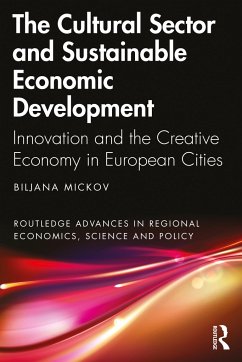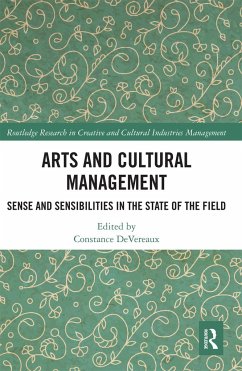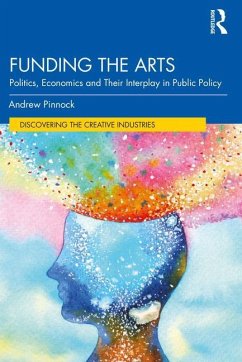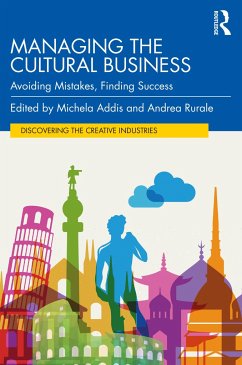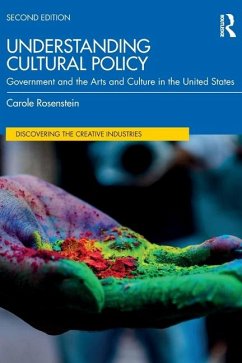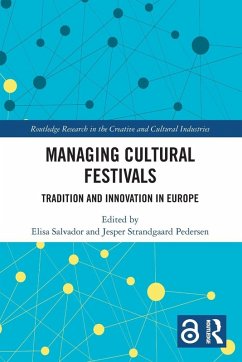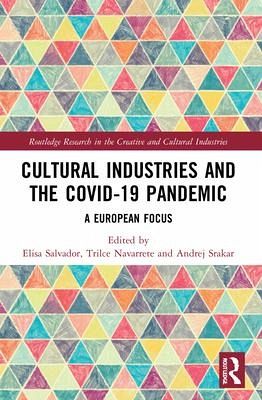
Cultural Industries and the Covid-19 Pandemic
A European Focus
Herausgegeben: Salvador, Elisa; Navarrete, Trilce; Srakar, Andrej
Versandkostenfrei!
Versandfertig in 6-10 Tagen
45,99 €
inkl. MwSt.

PAYBACK Punkte
23 °P sammeln!
Already dealing with disruptive market forces, the Cultural and Creative Industries (CCIs) faced fundamental challenges resulting from the global health crisis, wrought by the COVID-19 pandemic. With catastrophic changes to cultural consumption, cultural organizations are dealing with short-, medium-, and long-term threats to livelihoods under lockdown.This book aims at filling the literature gap about the consequences of one of the hardest crises - COVID-19 - severely impacting all the fields of the CCIs. With a focus on European countries and taking into account the evolving and unstable con...
Already dealing with disruptive market forces, the Cultural and Creative Industries (CCIs) faced fundamental challenges resulting from the global health crisis, wrought by the COVID-19 pandemic. With catastrophic changes to cultural consumption, cultural organizations are dealing with short-, medium-, and long-term threats to livelihoods under lockdown.
This book aims at filling the literature gap about the consequences of one of the hardest crises - COVID-19 - severely impacting all the fields of the CCIs. With a focus on European countries and taking into account the evolving and unstable context caused by the pandemic still in progress, this book investigates the first reactions and actual strategies of CCIs' actors, government bodies, and cultural institutions facing the COVID-19 crisis and the potential consequences of these emergency strategies for the future of the CCIs. Solutions adopted during the repeated lockdowns by CCIs' actors could originate new forms of cultural consumption and/or new innovative market strategies. This book brings together a constellation of contributors to analyze the cultural sector as it seeks to emerge from this existential challenge.
The global perspectives presented in this book provide research-based evidence to understand and reflect on an unprecedented period, allowing reflective practitioners to learn and develop from a range of real-world cases. The book will also be of interest to researchers, academics, and students with a particular interest in the management of cultural and creative organizations and crisis management.
This book aims at filling the literature gap about the consequences of one of the hardest crises - COVID-19 - severely impacting all the fields of the CCIs. With a focus on European countries and taking into account the evolving and unstable context caused by the pandemic still in progress, this book investigates the first reactions and actual strategies of CCIs' actors, government bodies, and cultural institutions facing the COVID-19 crisis and the potential consequences of these emergency strategies for the future of the CCIs. Solutions adopted during the repeated lockdowns by CCIs' actors could originate new forms of cultural consumption and/or new innovative market strategies. This book brings together a constellation of contributors to analyze the cultural sector as it seeks to emerge from this existential challenge.
The global perspectives presented in this book provide research-based evidence to understand and reflect on an unprecedented period, allowing reflective practitioners to learn and develop from a range of real-world cases. The book will also be of interest to researchers, academics, and students with a particular interest in the management of cultural and creative organizations and crisis management.





